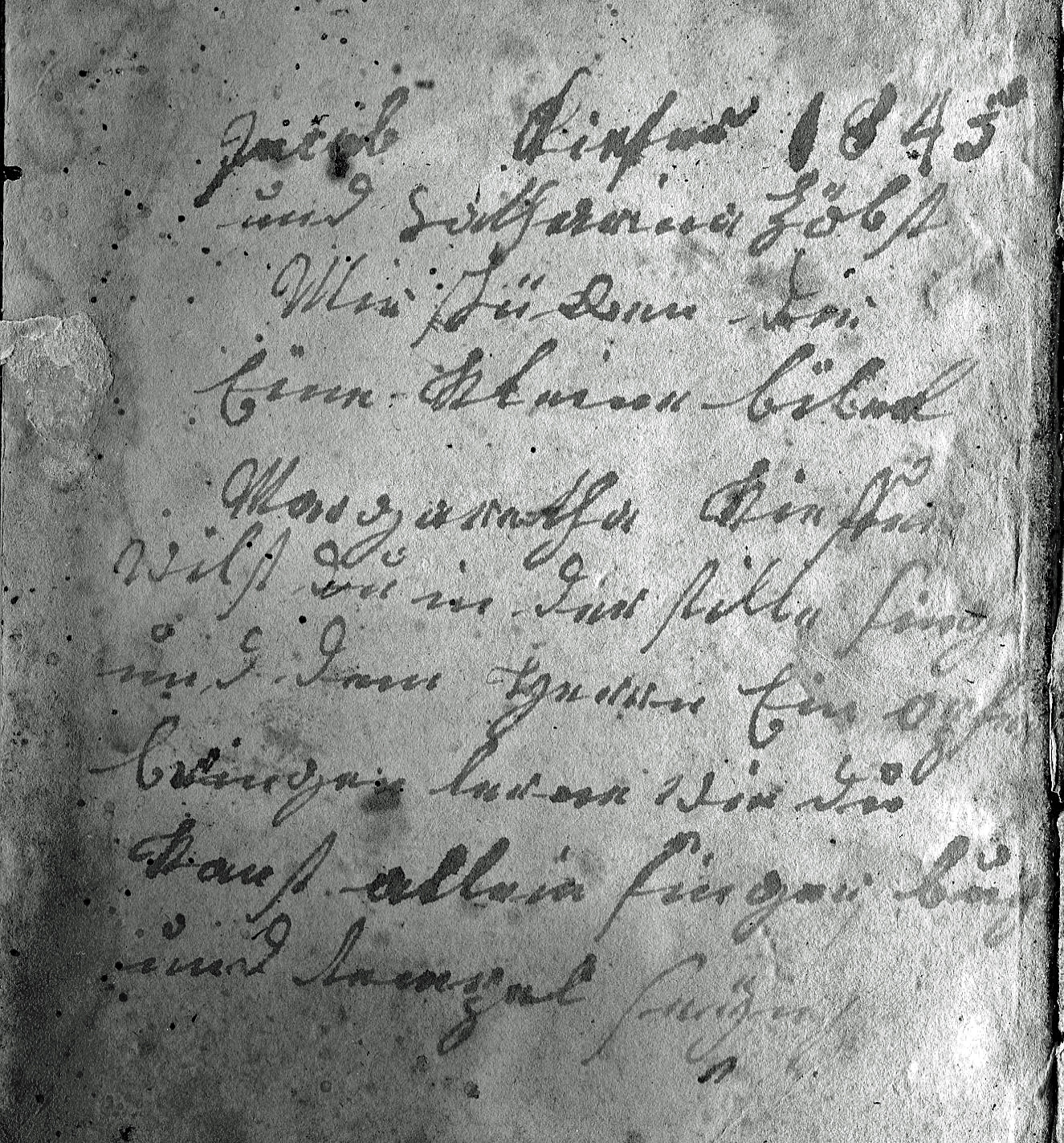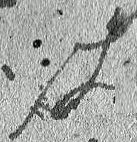 Jacob Kiefer 1845 und Katharina Zoebst
Wir...
Jacob Kiefer 1845 und Katharina Zoebst
Wir...

... Dir eine kleine bibel Margaretha Kiefer wilst Du in der stille singen und dem Herrn ein opfer bringen lerne wie Du kanst allein singen buch und tempel sehen
 Jacob Kiefer 1845 und Katharina Zoebst
Wir...
Jacob Kiefer 1845 und Katharina Zoebst
Wir...

... Dir eine kleine bibel Margaretha Kiefer wilst Du in der stille singen und dem Herrn ein opfer bringen lerne wie Du kanst allein singen buch und tempel sehen
I have nothing to add to @paulfrost's reasoned reconstruction of what the verb after "Wir" could be. However, I am making my comment into a formal answer for visibility reasons.
The last few lines of the dedication (after the name "Margaretha Kiefer") are a variation of a religious poem originally by Johann Peter Titz (1619-1689):
Willst du in der Stille singen
Und ein Lied dem höchsten bringen,
Lerne, wie du kannst allein
Sänger, Buch und Tempel sein.
(See f.i. here).
I do not know whether Titz himself wrote this as a church hymn, but the "singer" symbolism certainly suits and invites such usage.
We do know that it was sung in Protestant churches well into the 19th century, as evidenced by its inclusion in several hymnals (from 1849; from 1859).
As such, the text will have been familiar to the author(s) of this inscription.
The last word actually spells "seyn" (=sein) rather than "sehen", as pointed out by @paulfrost. Also, after "allein" I read "singer" (an alternative form of "Sänger") instead of "singen". A comparison with the source confirms these two spellings.
Das Wort zwischen "Wir" und "Dir" ist kaum zu entziffern. Aus dem Kontext ergibt sich, das es sich um ein Verb handeln dürfte. Inhaltlich passen würde "schicken", allerdings scheint das nur schwer mit dem Kurrent-Text in Einklang zu bringen sein. Hier dennoch ein Versuch:
In der Buchstabengruppe  könnte am Beginn ein "s" stehen; das passt zu anderen Vorkommen am Wortanfang. Das Zeichen danach sieht stark nach einem "h" aus, wie an anderen Stellen des Texts. Ein "c" ist zwar nicht erkennbar, vielleicht wurde es vergessen oder ging sozusagen verkümmert ganz oben in die Verbindng zwischen "s" und "h" ein.
könnte am Beginn ein "s" stehen; das passt zu anderen Vorkommen am Wortanfang. Das Zeichen danach sieht stark nach einem "h" aus, wie an anderen Stellen des Texts. Ein "c" ist zwar nicht erkennbar, vielleicht wurde es vergessen oder ging sozusagen verkümmert ganz oben in die Verbindng zwischen "s" und "h" ein.
Danach folgt  , was ein "ü" oder ein doppeltes "i" sein könnte.
, was ein "ü" oder ein doppeltes "i" sein könnte.
Noch eine Bemerkung zu "buch und tempel sehen". Das letzte Wort sieht nicht wie "sehen" aus. Ich vermute, dass es "seyn" ist. Tatsächlich wurde das "y" früher häufig mit zwei Umlaut-Punkten darüber geschrieben. Vgl. hier.
Update:
Hier einige Beispiele zur Schreibung von "sch" (aus dem Text in Deciphering of difficult Kurrent (?) handwriting):
Das "c" ist in diesen Beispielen oft kaum erkennbar. Das stützt meine obige These.